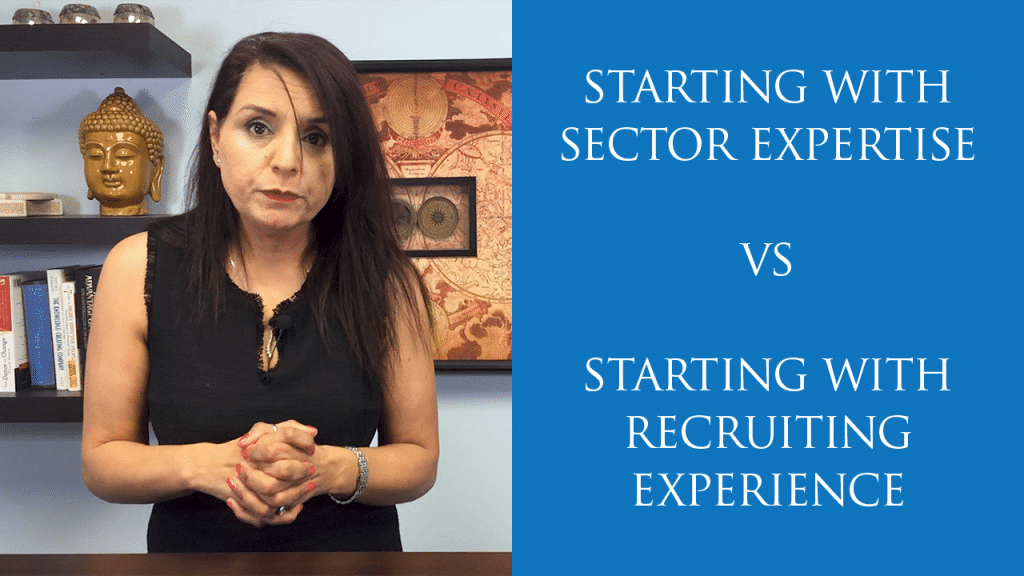Suky goes in to some detail on the issue of learning a core vertical and then getting into recruiting for it vs. being a recruiter and learning a vertical. She also talks about some tips on how to switch verticals for existing recruitment professionals.
Transcription
Hi I’m Suky from Professional Selection. Today I’d like to talk about: is it better to have sector experience and then come into recruitment, or come into recruitment and then gain the sector knowledge that you need. The short answer is there isn’t a right or wrong here. It’s really going to boil down on a combination of things.
One. The hiring company, i.e. the employer, do they have the time to train you within recruitment? You may have industry expertise but to teach you recruitment, can they really invest the time, energy it’s going to need in order to make sure that you are successful and they’re setting you up for success? We all know in this day and age doesn’t matter what vertical or job you’re in every line manager is under pressure to deliver. Every company is looking for top results with a very low cost base so that’s something definitely that you need to explore throughout the hiring process. Now on the other hand if you’re in recruitment and you want to change verticals, so for example you’re doing light industrial you want to go into IT recruitment, again you’ve got to look at it and say “What value am I bringing to that employer?” Now bear in mind they’re probably talking to some of their direct competitors employees so IT recruiters from their competitors – you’ve got to differentiate yourself, because again they’re going to have to spend time training you on that particular vertical. One thing you can do to help yourself is make sure your IT knowledge is up-to-date.
So there’s a number of different ways that you can help yourself get your IT knowledge up-to-date. Talk to IT recruiters, talk to other people in the industry. Now does that guarantee you the job? No it doesn’t. Again as I said earlier it’s always going to boil down to return on investment. Now having said all of that I also have those clients that are looking to break into that new sector, vertical. Usually they’re looking at somebody pretty seasoned for this. In that particular case the company has a knowledge gap within the sector. So what they would have done is during their plan, their strategy meetings and so forth, they would have planned to allow time for that individual to learn recruitment. So that gap is the knowledge gap so that’s what this candidate is bringing so they would have said: “three, six, twelve months depending on the role to ramp this individual up”. So there in that particular case the training is going to be in the process. It’s all going to depend on as I said as a hiring company and what their bandwidth is.
So in closing money is also going to be important. It’s great wanting to come into the recruitment industry or change sector, but you also got to realize that the dollars have got to make sense for both yourself and the hiring company. You may be worth X amount in your sector, but coming into a recruitment you’re likely not worth that because you’re not bringing other than your sector knowledge. The client as I said still has to do that training so I would before trying to do that sit down and look at it and say what’s my bottom line? We all have mortgages to pay so only you can decide what that bottom line is and then go to market with that.
At the end of the day its’s always going to depend on what the company is looking for, what stage of career you’re personally at but it’s still worth applying if you’ve thought through all the checklists that I’ve just given and you still want to enter the market or change verticals, to continue applying. And hey, speak to one of our consultants here they’ll be able to advise you even better. So as always, I’m sure there’s many different opinions, would love to hear them. Feel free to leave your comments below and as always, thanks for listening.



